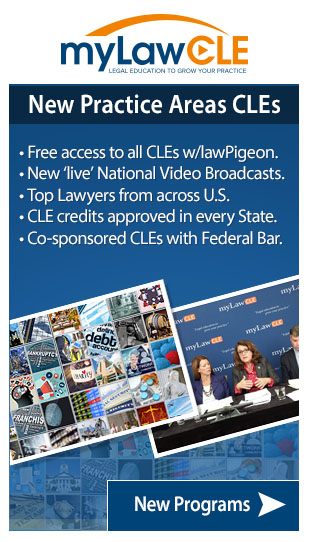Choose from the following categories to see the latest news in each category.

In most cases a nonprofit that's been formed under state law will not be automatically exempt from federal income taxes, and will need to go through the process of applying for tax exemption. In order to be eligible for tax exemption under Section 501c3, an entity needs to be organized and operated exclusively for one or more of these purposes:Read More...

After an organization meets the operational and organizational test, the next step in filing for tax exemption under Section 501 c3, for organizations that are not able to self declare such as churches, is to file a form 1023, or 1023ez with the IRS.
Form 1023 is a 12 page application with schedules, and there are 38 pages of instructions. The assistance of an attorney is not required, yet it is an area where an attorney can be particularly helpful in terms of guiding the applicant through the process. Read More...

Under the model act, it states that all corporate powers must be exercised by, or under the authority of the nonprofit's board of directors. The board also carries the responsibility to protect the public's interest in the nonprofit, as well as review and approve the finances of the organization.
Read More...

The law ensures the rights of the children with disabilities, as well those of the parents. Not only does the law ensure that children with disabilities have the opportunity receive Free and Appropriate Public Education FAPE, but also in the LRE, Least Restrictive Environment. The law also ensures that parents are fully informed of their rights and are participating in the educational process. Read More...

The Individuals with Disabilities Education Act (IDEA) has a valuable purpose, and that purpose is to ensure that all children with disabilities have available to them a free and appropriate public education. Each eligible child is ensured, under IDEA, Free Appropriate Public Education (FAPE) with an emphasis on special education (SPED) and other related services.Read More...

FAPE stands for Free and Appropriate Public Education, and is free special education and related services at public expense under public supervision and direction. These services must meet state educational standards and provide preschool, elementary, and secondary school level instruction.Read More...

The landmark Americans with Disabilities Act (ADA), is federal legislation that congress enacted in 1990, and prohibits the discrimination against those with disabilities. The five areas protected from discrimination are employment, public state and local government services, public accommodations & commercial facilities, telecommunications, and a variety of other miscellaneous facilities. Miscellaneous facilities on the federal and state level, such as bus service, government meetings, public schools & universities, recreation facilities, and state parks are all to meet federal standards to accommodate our citizens with disabilities. Read More...

Discipline of the student with special needs are entitled to due process, prior to receiving discipline because education is a legal right and we guarantee under the 14th amendment that students will be educated. Though parents and students find it difficult to distinguish between rights and privileges when it comes to prom night and walking at graduation, those are privileges not rights. Read More...

The Alcohol and Tobacco Tax and Trade Bureau (TTB) has the primary jurisdiction over alcohol beverage industry in the United States. Many agencies regulate alcohol in the US, though the Alcohol and Tobacco Tax and Trade Bureau has primary authority. Learn More








